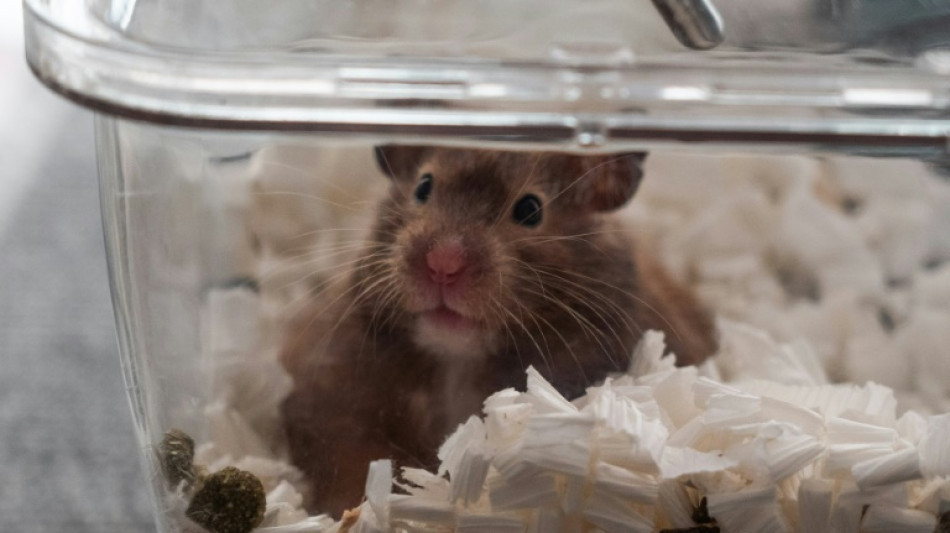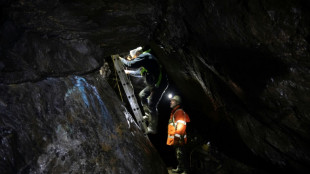

Hong Kong warns animal lovers not to obstruct hamster cull
Hong Kong's government Friday warned local animal lovers not to obstruct its ongoing cull of small animals, a policy triggered when hamsters in a pet shop tested positive for the coronavirus.
The Chinese city adheres to the mainland's strict "zero-Covid" policy, in which even the slightest sign of the virus is stamped out with contact tracing, targeted lockdowns and long quarantines.
The discovery of Covid-positive imported hamsters in the Little Boss pet store saw roughly 2,000 small pet shop mammals -- mostly hamsters, but also rabbits, chinchillas and guinea pigs -- culled as a "precautionary measure", with owners urged to surrender pets purchased after December 22.
But the policy has sparked a backlash, with animal lovers stationing themselves outside the government-run hamster collection facility to dissuade owners from giving up their pets -- a move the Agriculture, Fisheries and Conservation Department condemned Friday.
"The AFCD demands them to stop such action immediately and return the hamsters taken away," it said in a statement, adding that police had been notified of the hamster obstructionists.
By late Thursday, the facility said it had received 68 hamsters.
Local TV news Friday showed a police van parked outside the collection facility.
There is currently no penalty for pet owners who withhold hamsters purchased after December 22, but health officials have said Hong Kong has legal mechanisms for enforcing a mandatory surrender.
They also warned of the "increased likelihood" of animal-to-human virus transmission, after finding more Covid-positive cases linked to other local pet shops.
The city's top microbiologist and government adviser on Covid said the mass cull was needed to "avert disaster".
"We have reason to believe the source was the warehouse containing more than 1,000 hamsters in close proximity. The virus could multiply via cross-infection and spread to pet shops and other retail outlets," Yuen Kwok-yung wrote in an article Wednesday.
He added that virus samples found in the pet warehouse resembled the "non-local European Delta variant" -- which is now rare in Hong Kong.
Last year, Denmark was criticised for its decision to cull all 15 million of its mink population after some were found to carry a mutated virus variant.
The risk of animal-to-human transmission "remains low", a World Health Organization official said earlier this week, but is a possibility.
P.Smid--RTC


